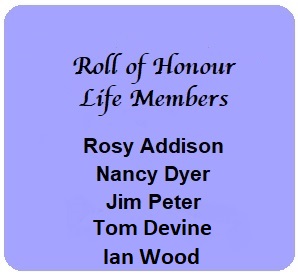yy

Alasdair Gray, who died at the end of December 2019, just missed the 700th anniversary year of the Declaration of Arbroath. However, this significant historical event was of great importance to him, and he had a few words to say about it in chapter 3, “A Kind of Freedom”, in his polemical booklet, Why Scots Should Rule Scotland (Canongate, 1992), with a bit more elaboration in the 1997 edition. He put it in a quote taken directly from the Declaration itself, on behalf of “the barons and freeholders and the whole community of Scotland” which declared to Pope John XXII “the sovereignty of the Scottish people and independence from English overlordship.” I would argue that Gray saw more clearly than most the Declaration’s implications about the nature of Scottish identity in its political dimension, even to this day. Some historians have tried to relativize what the Declaration actually means in the present-day context. They do so in a manner not dissimilar to how some historians have relativized the Magna Carta, claiming that it had no relevance to advancing the freedoms of what we now call ‘ordinary people’, or ‘commoners’ at the time. According to such historians, its relevance to advancing political freedom today has been highly exaggerated, particularly no doubt by discredited ‘Whig’ historians. But Gray thought otherwise, certainly in the case of the Declaration of Arbroath.

Magnus Linklater, in a column for The Times (Dec. 30, 2019), described how Ted Cowan, Emeritus Professor of Scottish History and Literature at the University of Glasgow, showed that the immediate context of the Declaration was “not so much a declaration of independence as a settling of scores among the power-brokers of 14th-century Scotland”, namely the partisans of Robert the Bruce against supporters of his rival John Balliol. The 39 signatories comprised eight earls and 31 barons. Yet this was no seemingly homogeneous group. No matter how aristocratic in pedigree, the signatories were actually culturally and politically diverse. Gray reminds us that, “The nobles who signed were Lowland Scots, Norman French, chiefs of Highland clans with Scandinavian Earls of Orkney and Caithness.”
Gray was also perfectly aware of the kinds of complications regarding the Declaration, and to what extent it enhanced liberty in Scotland, as suggested by Professor Cowan. This is how he put it: “But were the Scots better off for being ruled by their own bosses rather than foreign ones? Happiness and freedom cannot be measured scientifically so we must hunt for clues in chronicles and poems.”
For the purpose of ascertaining how much the Declaration was significant in what it revealed about any greater degree of freedom than usually allowed in the feudal societies of England and France, he turned to Froissart, ‘French chronicler of chivalry’ and ‘the son of a man who painted heraldic shields’. He visited Scotland in the 14th century, and Gray tells us that he “was struck by the bad manners of the Scottish peasants.” Froissart, according to Gray, was aghast at this kind of behaviour: “If a nobleman rode over a field, the men who worked it screamed and yelled at him to get off.” Gray conceded that this “does not prove that Scotland was democratic”, but on the other hand it does prove “the astonishment of the common people at an act of wasteful selfishness”, concluding that they “might not live freely, but they could speak freely, unlike the peasants of England and France whose lords had every right, in custom and law, to ride rough-shod and hawk and hunt over peasants’ land without let or hindrance.”

Alasdair Gray, therefore, thought of the Declaration of Arbroath as symptomatic of a greater degree of freedom among the Scots, even if in a very limited sense, in medieval Scotland than in other parts of the British isles, and therein lies its significance, and the justification for celebrating its 700th anniversary.
Mario Relich



